Grafting from pneumonia Children: side effects. Vaccination from pneumococcal infection to children - reviews.
Bacteria that annually carries millions of lives throughout the planet, it is worth named Streptococcus Pneumoniae.. Activating after the transfer of other diseases, it quickly destroys human body, penetrating various systems and organs. Currently, any vaccination scares parents. Whether in virtue of low-quality medicinal preparations, Whether due to ignorance and misunderstanding of the importance of vaccination, but most of the Paw and Mom are negatively configured against vaccination. Pediatricians, on the contrary, insist that the children put vaccinations according to. Who is right in this situation, who is wrong, it is difficult to figure out, but necessary. Especially when it comes to whether the vaccination is needed from pneumococcal infection Children.
What is pneumococci infection
The term "pneumococcal infection" appeared in medicine at the beginning of the 20th century. Today, under it understands the whole complex of diseases that are caused by the bacterium pneumococcus.
Among the most severe and dangerous of them can be called: pneumonia, purulent meningitis, arthritis, pleurite, endocarditis, acute otitis. Some of them almost do not leave the chances of life, others make a man with cripples until the end of life.
Pneumococci is made to allocate both conditionally pathogenic microorganisms. They are constantly in respiratory tract man. They are often found in the study of the mucus from the nasopharynk in children.
However, to attack some of the bacteria organs can only with sharp and strong decline immune response. This happens after the child has sobbed or other infectious diseases.
The only adequate way to protect against the pneumococcal infection is vaccination. At vaccination to the body, non-living or severely weakened pathogens of infection are introduced. The body begins to respond to " uninvited guests»Allocation increased quantity , whose function is to deal with viruses and bacteria.
The body is easier to cope with a weak, almost lifeless infection, rather than start fighting with a full-fledged strong virus. But even a weak virus in a vaccine is able to give the necessary immunity to a certain kind microbes. Therefore, even if the child picks up the disease, from which he was allegedly vaccinated, then already having immunity and antibodies to him, it is easier to pass. With strong immune system The disease can generally bear the baby after vaccination.
Types of pneumococcal vaccines
To date, most of the civilized countries of the world to prevent the pneumococcal infection are used by one of three vaccines:
Prevenar (7 or 13)
The manufacturer of this vaccine is the American Pharmaceutical Company "Vaiet". In its composition, it does not contain living bacteria, but their polysaccharides.
In the embodiment, the premises of the 7 most dangerous bacteria of the type of pneumococci are assembled. In the embodiment, prevented 13, respectively, there are more of them - 13.
In addition, the liquid also includes diphtheria protein, which allows the vaccine to remain in the blood of the child longer (this is necessary for the development of stable immunity), as well as aluminum hydroxide, whose task is to hold the liquid at the place of administration longer than the usual one. 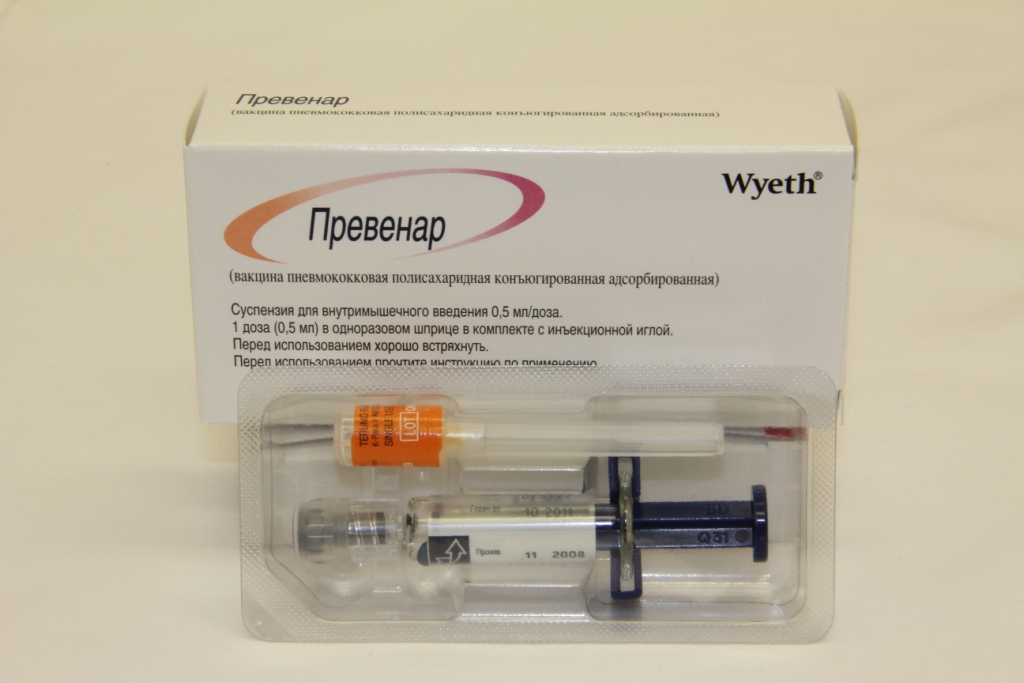
Pneumo 23.
The second vaccine - prevented 23 - is manufactured in France. Its manufacturer is the pharmaceutical company "Sanofi Pasteur". Unlike the first, this can protect the child immediately from 23 serotypes ( antigenic characteristics of subtypes of bacteria cells, viruses and other). It includes:
- sodium phosphate;
- phenol;
- water;
- purified bacteria polysaccharides.
Based on the fact that the vaccine contains more than 23 strains dangerous microorganisms, vaccine is recommended for children from 2 yearsbecause Smaller children are immune to vaccine components.
Despite the effectiveness of the vaccine, weakened children may occur negative reactions in revaccination, so those who are included in the risk group, this type of vaccine is not recommended. 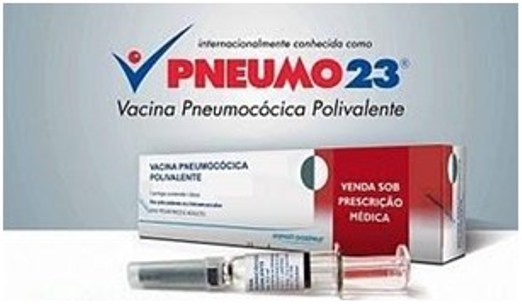
Synflorix
This is a Belgian vaccine containing up to ten strains ( strain - pure culture of viruses, bacteria, other microorganisms or cell culture, isolated in a certain time and in a certain place) Pneumococci and hemophilic infection strain. This vaccine appeared in our country quite recently, so it is about to judge its advantages and disadvantages. 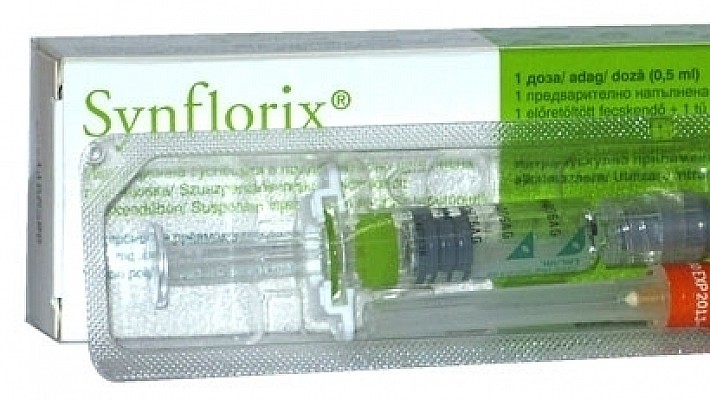
All three vaccines have a form of a colorless substance with liquid consistency (similar to water). They are introduced to children under the age of 5, as well as senior children and adults who are in the risk group.
Vaccination scheme
The introduction of any pneumococcal vaccines is carried out only intramuscularly. IN perfect version They (one of them) children aged since 2 months old. The dose of the drug should be 0.5 ml.
Further, with a frequency of 1 month, the protective substance is introduced by the baby even twice (vaccination in three stages). That is, 3 doses of the drug should be introduced. To secure the result, an additional 4th dose is entered in half a year. It is called revaccination.
With mass vaccination (when the state pays for the vaccine), 3 doses are introduced to the baby. The first one at the age of 2 months is as follows - in 4.5 months, and the third (as a revaccination) is 15 months.
If for any reason, the administration of the drug becomes possible only after 7 months (for example, if the child had a medical removal from vaccination for some reason), the vaccination scheme should be the same (2 doses with a difference of 1 month and Another after 6 months).
A vaccination from a pneumococcal infection for children for more than 6 years is not recommended. According to pediatricians, at this age, the children's is already quite strong to deal with bacteria. The introduction of the drug to protect against pneumococcal infection simultaneously with other vaccines is allowed.
What you need to fear after the introduction of the vaccine
Special side effects in the case of vaccinations from pneumococcal infection are not observed. As a rule, the reaction to the vaccination in healthy children is the same as after the introduction of other vaccines.
But sometimes quite normal reaction children's body The vaccine components can be alert and even scare parents. They start panicing, to wrap the thresholds of children's clinic and terrorize doctors. Therefore, it is important to know that there is a norm after vaccination, but what should cause questions.
So, over the next few days from the moment of administration of the drug, parents may notice the following symptoms:
- a slight rise in temperature (rarely found);
- chills (due to increased temperatures);
- changes in behavior - drowsiness, lethargy, or on the contrary, irritability, nervousness.
All these are the so-called general reactions. Their frequency after vaccination vaccines pneumo 23 and prevenar (7 or 13) does not exceed 2%.
More often (in 5% of cases) a local reaction is observed. At the place of administration (for children until 24 months exterior hips, and for older children - top part Shoulder) An insignificant seal may appear and redness. Edema for the first few days can significantly increase, but subsequently passes independently.
As in the performance of any injections, the appearance of purulent formations in the place of administration of the drug is possible. However, it does not have any relation to the vaccine itself. To a greater extent, it is associated with sterility in medical Cabinet, and the work of the nurse (not used medical gloves, lack of pre-disinfection of the injection site).
The most dangerous, however, extremely rare reactions to the drug are considered:
- aggravation of chronic diseases;
- swelling quinque;
- strong - anaphylactic shock.
If such symptoms you discovered your child after vaccination, immediately call quick help.
Contraindications for vaccination
The advantage of vaccines from the pneumococcal infection is their good tolerability to children even two summer age. That is why contraindications to their use are less than in the case of some other drugs.
Most often, the child remains unvacuated from the disease only in cases where there are some serious violations of health or due to the abandonment of the vaccination of the parents themselves.
But there is a list, so-called relative contraindications from vaccination. Relativity is explained by the fact that, for example, the child cannot be vaccinated in a specific period of time, if he just got sick viral diseaseHis body is weakened.
The main contraindications to the administration of the drug are:
- individual intolerance to the components of the vaccine - it happens very rarely; As a rule, pediatricians are learning about it after the first vaccine in the body; As a result, strong allergic reaction All subsequent vaccinations are canceled;
- exacerbations of any of chronic diseases;
- acute course of any disease, even ordinary ARS or cold;
- even the minimum increase in body temperature, and even in cases where and comprehensive examination, and the results of the tests indicate that the child is completely healthy.
If any of three recent reasonsThe introduction of the protective vaccine is postponed until the child becomes completely healthy and its thermoregulation will be restored.
What to do after the introduction of Vaccine against Pneumococcus
Nic special action After vaccination, the baby is not needed. Usually, best help - Do not interfere with the body to cope with the development of immunity. Most of the symptoms disappear for 4-5 days from the moment the drug is administered.
After vaccination, the child can be safely fresh air, There are loved ones (but not those that can cause allergies) dishes ,. The place of injection is allowed to wet, but it is not necessary to lubricate it with iodine. It will be longer to heal the injection site if you close it with a plaster or bandage.
When the body temperature appears, it is allowed to use, for example, based on ibuprofen or paracetamol. In some cases, doctors recommend the use of antihistamine preparations and before, after the introduction of the vaccine.
In the case when a sharp deterioration of the child's condition is observed, there are atypical manifestations, the temperature is strongly risen, you need to call a doctor.
Among all vaccinations that must be carried out to children, today is also present and the so-called pneumococcal. As it is clear one by one name, pneumococcal grafting Allows you to protect the child from pneumococcal infection. But still some parents fear such vaccination. To dispel myths associated with a similar vaccination, it is worth looking at Komarovsky's opinion about it. It will also be useful to familiarize themselves with the reviews of those parents whose children a pneumococcal vaccine was performed.
And first of all, you need to know why a pneumococcal vaccination, Komarovsky told about it, must be carried out. Her appointment is to protect the child from the most different microorganismswhich are combined into the pneumococci group. It is they who cause otitis, pneumonia, bronchitis, arthritis and many other diseases. Therefore, it turns out that the vaccine from pneumococcus becomes very reliable support for the child's body.
Komarovsky emphasized that the vaccination from such an infection can be different. On the this moment Used primarily preventer-7 and pneummo-23. But in his revocation, Komarovsky said that more good option There will be the first vaccination.
Parents are still often afraid that instead of protection against infections, their children will receive complications. Komarovsky, considering the pneumococcal vaccination, made a lot of interesting comments. They should further consider that the feedback about such a vaccine is the most complete.
Commary Review about pneumococcal vaccination
Despite the concerns of the parents, the vaccination from pneumococcal infection to children, reviews and Komarovsky about it eloquently testify, is not related to some serious danger. Komarovsky emphasizes that when performing this vaccination against dangerous viruses, some rules must be followed. Most important comments Komarovsky are presented below.
- Komarovsky advises to perform pneumococcal vaccinations to children who have not yet reached five years. It is at this age that the child's body is especially vulnerable to infections.
- The pneumococcal vaccination will also be useful, provided that the child often sick. Permanent recurrences cold illness indicate a low baby immunity. In this case, the pneumococcal vaccine will have an extremely positive effect.
- The probability of catching infection in children attending kindergarten, especially great. And therefore, Komarovsky says that every child who is brought up in such an institution must go through vaccination.
- You can also get more benefit if you have a child from a pneumococcal infection in the event that he was born ahead of time. Premature children Pneumococcal vaccination will allow faster to acquire immunity.
But nevertheless, even Komarovsky recognizes that the vaccination from the pneumococcal infection can be done not to everyone. It is necessary to postpone it with its implementation, if a child had an exacerbated disease, the temperature rose, an allergic response to previously used drugs arose. But Komarovsky calls on his recruitment of parents not to be afraid if the child has spoke red on the skin after the vaccination. This sometimes happens, but is completely unnecessary to health hazards.
Hello, dear friends! Vaccination has long and tightly entered our lives. Today it is called one of the most effective tools For the prevention itself dangerous persons, including bronchitis, pneumonia and meningitis and are prescribed from the first months of life. But not everyone does not always follow these appointments, fearing serious side effects. An example is a bright example - a vaccination from a pneumococcal infection to children, the reviews about which can be found on the net.
Is it correctly - time will show. In the meantime, doctors assure that it is absolutely safe and effective in the fight against complications after diseases provoked by pneumococcus. And young parents still doubt. We hope to help them make right choice And this article will help.
About Pneumococcus, or Streptococcus Pneumoniae spoke first in 1881. He represented a spherical bacterium with a specific and incredibly powerful protective shell.
Ironically, he was hit by the most sensitive segments of the population, including children under the age of 5 years. Since then, practically nothing has changed.
Pneumococcus is still infected and suffer from:
- pneumonia;
- bronchitis;
- sinusitis;
- purulent meningitis;
- arthritis;
- otita;
- endocarditis (inflammation of the inner shell of the heart);
- sepsis (blood infection) and the masses of other diseases.
In order to minimize the risk of their occurrence in 2014 and it was decided to introduce into a chart of vaccinations another - vaccination from the pneumococcal infection.
The expediency of its use doctors confirm the facts:
- pneumococci themselves are found in the nasopharynx of healthy people, including children, and successfully transmitted by air-droplet;
- each fifth bronchitis is exacerbated due to their excessive activity;
- there are over 80 types of pneumococcal bacteria.
2. Types of pneumococcal vaccines
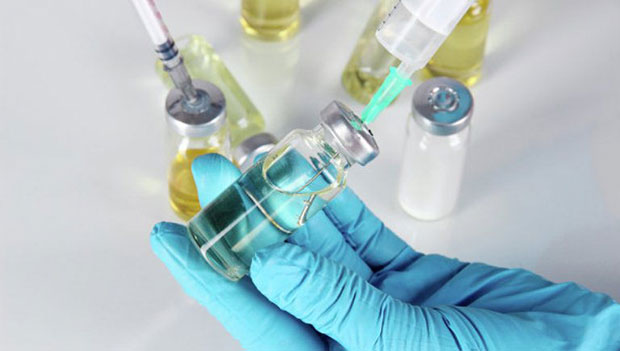
On the modern market You can find the following vaccines:
- Prevenar - The preparation of the United Kingdom and the United States, which is produced in two types, depending on the number of bacteria strains - 7 and 13. With it, they instill children aged 2 months to 5 years in 90 countries of the world.
- PnemoM-23. - French drug, which is used for more than 20 years. It has 23 of the most dangerous strain of bacteria, so it is shown to children from a two-year-old age. Kids to him are immune and this, by the way, is not the only drawback. The fact is that Pnemo-23 leads in terms of quantity negative reactions After vaccination and, especially, revaccination. Therefore, they prescribe it most often to people who are in the risk group.
- Synflorix. - Vaccine of Belgian origin, which contains 10 strains of pneumococcus and a pleasant "bonus" - a component of hemophilic infection. Comparatively new, it is used in our country literally a couple of years, so there is no advantage on its advantages and shortcomings.
3. Vaccination scheme
What do you think when they make a vaccination from pneumococcus? That's right, it all depends not from the calendar, but from a particular vaccine.
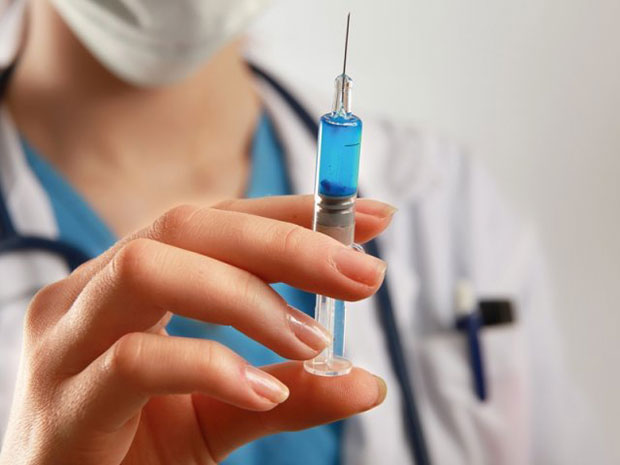
For example, PnemoM-23. Entered once with mandatory revaccination after three years.
FROM Prevenar Everything is more complicated. How many times is it done? Here it all depends on the chosen scheme and age of the baby:
- 2-6 months - during this period there are 3 injections with an interval of 30 days and subsequent revaccination at 12-15 months;
- 7-11 months - two doses are introduced at intervals of 1 month, and after a year they carry out revaccination;
- 12-23 months old - Make 2 injections with an interval of 2 months. Revaccination is carried out only by testimony;
- 2-5 years old - I am introduced 1 dose without revaccination.
It is worth noting that children can be vaccinated with these and other vaccines can one day. Injections are made subcutaneously or intramuscularly, and children under 2 years old in the thigh, and after 2 years old - in the shoulder. After 6 years, its use is not effective.
According to physicians, such a procedure allows you to develop immunity to pneumococcus literally for a half or two weeks. Nevertheless, it does not become more from this who want it. Why? The answer is obvious - the whole thing in complications.
4. What you need to fear after the introduction of the vaccine
Doctors argue that drugs for the prevention of diseases caused by pneumococci are considered relatively new and absolutely safe. Just because there were no dangerous preservatives in their composition. side effects. However, some unpleasant phenomena still have a place to be.

This is about:
- redness, swelling or compaction in the area of \u200b\u200bthe injection;
- increase body temperature up to 39 degrees;
- worsening appetite;
- worsening sleep or constant drowsiness;
- irritability and lethargy.
They occur in 2-5% of the graft children and disappear after two days. In rare cases, more serious consequences are possible - a very high temperature up to febrile cramps and strongest allergic reactions. But they are, as a rule, due to insufficient examination of the child and the late detection of contraindications.
5. Contraindications for vaccination
The vaccination from the pneumococcal infection cannot be made to children who have hypersensitivity to individual components of the vaccine. Revaccination is undesirable with pronounced allergic manifestations for the drug.
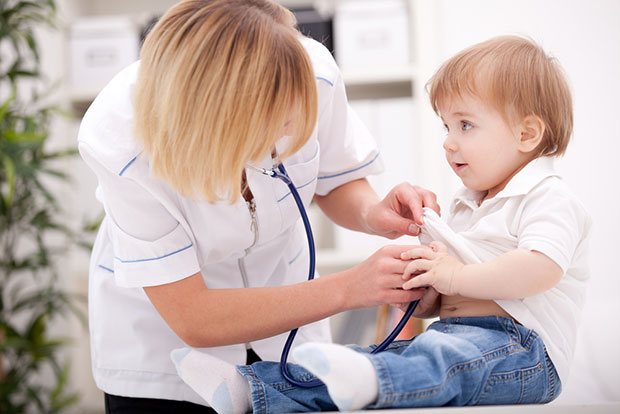
At the same time, the vaccination is shown premature children, as well as those who have immunodeficiency and "experience" of the disease with pneumococcal infections. Just because it allows you to prevent repeated infection.
Although it is still worth postponing to better times, if revealed:
- sharp ailments;
- high body temperature;
- the aggravation of chronic diseases.
6. What to do after the introduction of Vaccine against Pneumococcus
Many parents are concerned about when you can bathe a child and how to care for the injection site.
Only experts can answer it. According to them water treatments It is better to exclude not only on the day of vaccination, but also in the next 2 days. This is explained by the fact that the injection can provoke an increase in body temperature, and she and bathing are incompatible things.
Additional departure of the injection is not required. Also, you should not apply ointment or green to him, however, how to stick it with a plaster.
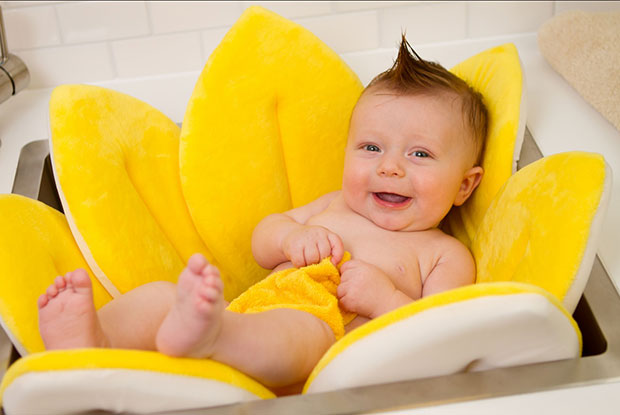
A vaccination from the pneumococcal infection has become mandatory recently. That is why there are so many disputes and doubts around it. We hope that the video of Dr. Komarovsky will help you to dispel them or, on the contrary, to strengthen them.
7. Reviews
We summarize all of the foregoing real reviewswhich we found on the Internet.
Inessa:
The older child was vaccinated in those days when it was not mandatory own willing. I do not remember the name of the vaccine, but there were no sores, TTT.
Rita:
We made this vaccination together with the vaccination from hepatitis. I did not notice any complications, except that the kid was crying and a little sleepy. Although it is possible that it is simply in the amount of vaccines.
Dasha:
The daughter put it together with DC and polio. Heat held 2 days. I do not know who is to blame, but in principle, it did not reach the terrible.
Dear Parents! Vaccination from pneumococcal infection is not only future defense, but also the real test for immunity. Draw him his own baby - Solve only to you. In any case, my advice to you, weigh all the pros and cons.
And now this news, (more precisely, this is news for me, since there is no such thing in the Republic of Belarus): In Russia, started mass vaccination against pneumococcal infection of children The first and second year of life.
If it was earlier, as well as for children in the risk group, since 2014 it is planned to vaccinate 2 million children annually.
Immediately I will say that it is very good and generally super! This situation was before it was decided to compulsory vaccination.
Pneumococcus
In fact, Pneumococcus is the same well-known streptococcus. But it is precisely this species more often than others in patients with pneumonia, so it was named Streptococcus Pneumoniae.. It causes not only lung disease. He is guilty of frequent otitis, sinusitis (read ), , Bronchitis. Able to call even sepsis.
About 60% of children have one episode otitacaused by this infection. Healthy people are carriers of bacteria and do not suspect this. And there may be children who pick them up. Among children carriers are 80% kids up to 3 years and 35% From 4 to 7 years. therefore graft from pneumonia to children up to the year entered the national calendar vaccinations.
Pneumococci are transferred with saliva through, sneezing, toys, household items.
The likelihood that your baby is constantly faced with him in everyday life Very great. Pneumococcus types are up to 80-90 pieces. In addition, it has a shell protecting it from the production of antibodies. Therefore, it is so difficult, and children under 5 can be infected with a microbe repeatedly!
Who is in the risk area among children?
- children of preschool age;
- children in contact with carriers;
- children with weakened immunity, especially, immunodeficiency, HIV infection;
- premature
- children who hurt the disease caused by pneumococcus.
Contraindications
Like another vaccine bringing from pneumonia to children Do not enter if:
- the child has ;
- chronic pathology aggravated;
- he is ill ;
- there is an allergy to the previous introduction of the vaccine.
All the reasons other than the last reason to postpone the vaccination before recovery, and not to cancel it at all.
Among complications in 5% of cases, a local reaction in the form of itching and redness is observed. 2% note the overall making and an increase in body temperature. All this usually does not last more than 2 days. In general, the vaccination is easily transferred, approximately as.
To eliminate the occurrence of an allergic reaction to the drug, the baby is observed for about 30 minutes.
What is the name of the vaccine from pneumonia to children
To date, their three: prevenar, PnemoM-23 and Sinflorix.
Prevenar
English vaccination from pneumonia prevenar children It produces antibodies to 7 or 13 strains of pneumococcus (Prevenor 7 and Radar 13, respectively).
I will say right away that today this is best vaccine against pneumococcal infection. Its successfully apply 90 countries in the world. Preventer 7 is compared with Sinflorix, but the latter has little experience. About him below.
Showing for children from 5 months to 2 years.
Vaccination schedule
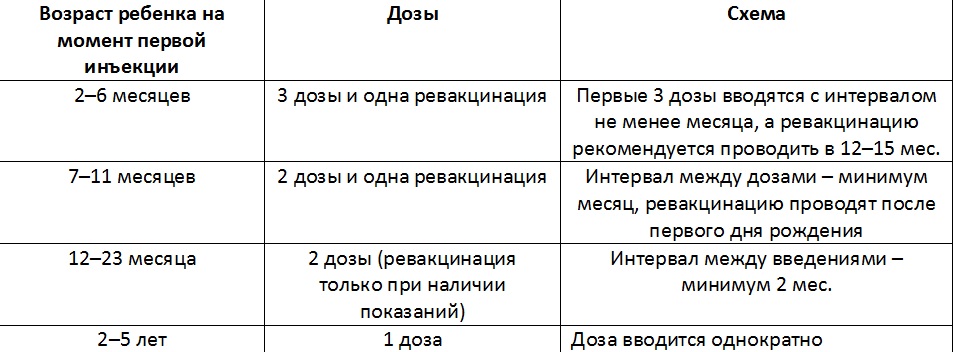
Sinflorix (Glasosmitklein)
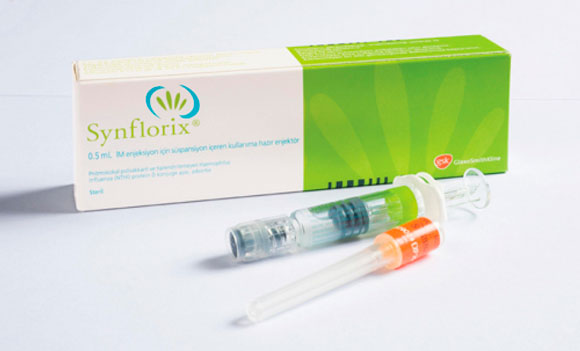
Released relatively recently, about 5 years. Regarding the presenter is much cheaper. Among the advantages, except for immunity against 10 pneumococcus strains has additional component Hemophilic stick. What is very good because it can cause both pneumonia and such a life-threatening condition like epigetytic.
Showing children from 6 months to 5 years. Studies have already been conducted, which compared the effect of Sinfliks and Prevenar 7. Vaccines are not inferior to each other in efficiency and can be applied to the prevention of otitis, meningitis, pneumonia.
The vaccine can be used in conjunction with the vaccination against the cough, diphtheria, tetanus, hepatitis B, poliomyelitis, measles, parotitis ,. The immune response in this case does not change.
The application scheme is similar to the prevention (see table).
PnemoM-23.
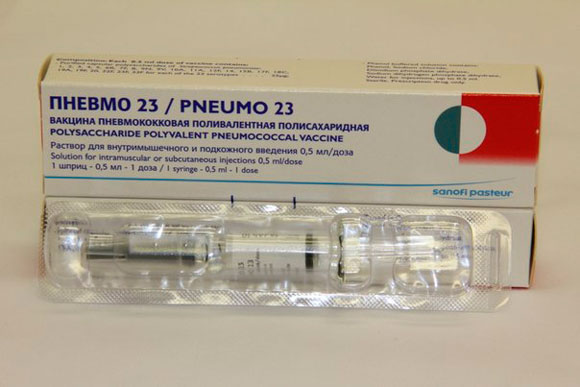
French vaccination, the very first and very inexpensive.
Minus - the inability to use in babies. Allowed to use in children from 2 years of age. The name itself says that the vaccine contains the maximum number of possible pathogens that can cause heavy Diseases - 23 strains.
Recently made vaccination from pneumococcus. Made a grafting son Prevenar in 1 year 2 months. We use the European vaccination plan. And quite just that, those who included this vaccination in the NCP, will not get used to the "trouble," trouble "," trouble "as an argument. Pneumococcal vaccine only from January 1, 2014 is made to " National calendar preventive vaccinations Russian Federation".
I know that if desired, you can also make vaccination against meningitis. We can, from the nerves, the vaccination is better to put ... We did not do the vaccination from meningitis, the pediatrician proposed at will. England. In the hospital, we have a vitamin K. and from tuberculosis here do not make vaccinations.
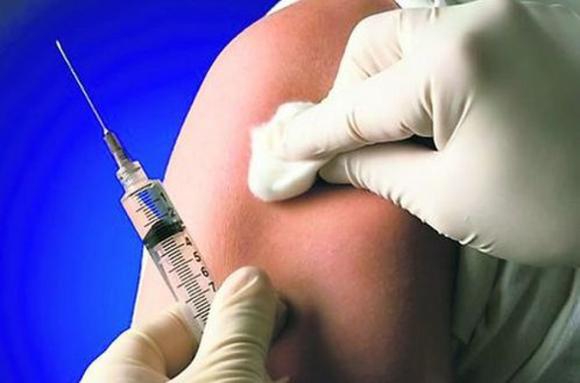
Vaccination against pneumococcal infection included in the vaccination calendar
We must drive from the border of the vaccine to your children, and not to burgitate the medieval nonsense about harm vaccinations! Now I stand in front of the choice: do vaccinations a child or not. I think ...
Let the vaccinations be invented as much as possible, just not to be missed. Who is afraid not to be vaccinated from certain vaccinations, let them hurt on health!
Village from Pneumococcus (Pneumo 23, Prevenar)
And my child is not vaccinated, and does not hurt. Guest (which one in the city lives, and the rest in the forest) about intrauterine infections: how the child was born healthy, and in a week it turned out to be intrauterine pneumonia - this is the first question. Every time I am striking, with what poison opponents of vaccinations speak. And people-supporters of vaccinations in underdevelopment, illiteracy and "outstanding". Yes, do not make your children vaccinations, your right! But it is not necessary to insult other parents, who also love their children and shuffle!
Made such a graduate of his grandson before visiting kindergarten. So the mass of Mamash boycott vaccinations for some kind of religious or, on the contrary, too "educational" arguments. Made a child pneumo 23 fee 2 years ago. Satisfied very much. In the calendar, I understand that it will be a prevenue?
Only a domestic vaccine, which will instill all children in mandatory order. And your love for vaccinations will pass once and for all. And as soon as they canceled the vaccinations to pregnant women, they immediately disappeared and mastits in postpartum period. And the grandchildren did the vaccination imported and nevertheless (and it was already more than six months), three days in the kindergarten-three, four weeks at home for recovery.
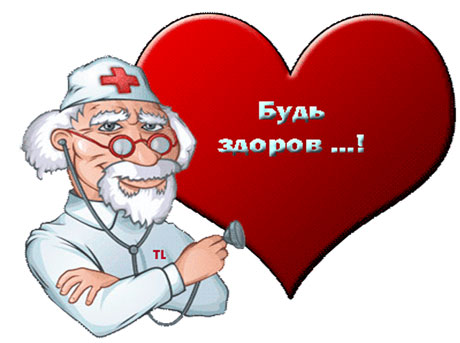
A bunch of other acquaintances and friends who have the first two or three to five months in the garden did not get out of hospital. And in the hospital from the attending physician, I first learned that bronchitis and pneumonia are caused by a pneumococcal infection, from which vaccines have already been invented, widely used in the West. This American vaccine protects from the 7 most common types of pneumococcal infection.
I did not notice the reactions to the vaccination, the only thing, the child was slightly sluggish on the day of vaccinations and everything, the temperature did not rise. And if earlier we have a little bit like a runny nose and we have slipped, then after the second vaccination prevented, we stopped so much.
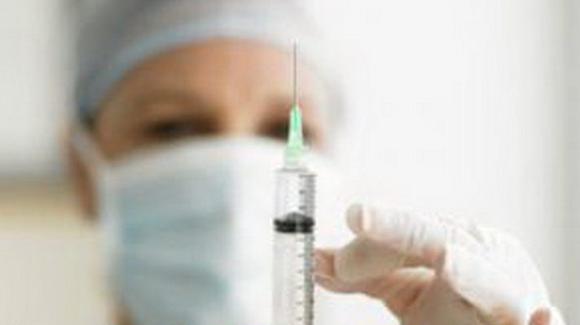
Vaccination Pneumo23.
Considering that it is not necessary to put one, but two, but under the age of three vaccinations, it turns out quite considerably. For example, the vaccination from the cough-diphtheria-tetanus "Infanrix" - stands 3 times cheaper! By the way, before this vaccination we put imported vaccine Against rubella core pigs, called a priorix, which I can also recommend.
Most often, it is children who are carriers of a pneumococcal infection. Vaccination against pneumococcal infection is carried out with prophylactic and therapeutic goal. As medical agent The vaccination must be carried together with combination treatment. In Russia, the draft law has already been approved, according to which since 2014, vaccination against pneumococcal infection will be required.
Yes, the vaccinations need to do, but always predict the consequences. We put all the vaccinations that needed to put up to 2 years. We also think this vaccination if not age limitations. Of course, I put the vaccinations where without them. And in principle, I'm just for. But then, then there, you hear about entering one more. Soon we will be 4 times in a month. But each vaccination is a risk. And he must be justified. But I absolutely do not understand the influenza vaccination.
Vaccinations and tests
Best prevention in this case - timely vaccination from pneumococcal infection in childhood, consent or refusal to which parents can write.
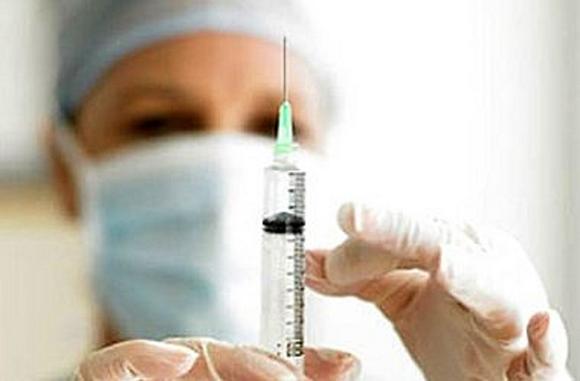
Preferentially preferentially, since this pneumococcal vaccination is placed by children, starting with the 3rd (in case the child is in the risk group, even from 2-way months. So parents are unlikely to give up this vaccination. Some special side effects vaccine from pneumococcal infection has no children. All the symptoms that may arise after it are quite typical, as with the rest of vaccinations.
That is, you think that all over the world tuberculosis is only in Russia ??? On the one hand, knowing such stories, I want to abandon the vaccinations, on the other - I'm afraid that the unmucky kid will get sick with anything. And vaccines are easily transported from here to Russia. Need to buy a vaccine (in medical center) And immediately put it in the special. Container, cat. Easy to purchase.
I so scary to introduce vaccinations to the body. All these side effects After vaccination from the pneumococcal infection, you just need to endure. We put one vaccination for 3,700 rubles. Svetlana, question about vaccination from meningitis ...
